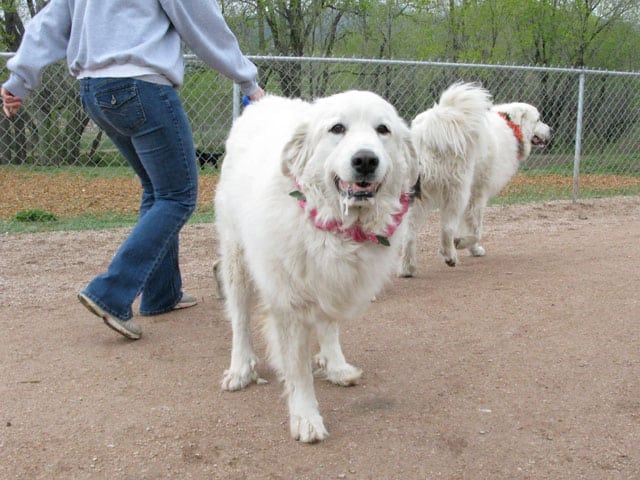Has your Great Pyrenees dog been diagnosed with osteosarcoma bone cancer? If so, just one donated blood sample can make a huge difference in cancer research at the Van Andel Institute.
 The Van Andel Institute, a biomedical research facility based in Grand Rapids, Michigan, is seeking small blood samples of Great Pyrenees dogs with osteosarcoma for their Canine Hereditary Cancer Consortium.
The Van Andel Institute, a biomedical research facility based in Grand Rapids, Michigan, is seeking small blood samples of Great Pyrenees dogs with osteosarcoma for their Canine Hereditary Cancer Consortium.
It’s so easy to make a difference!
Dr. Roe Froman, DVM and Senior Veterinary Research Scientist at Van Andel explains:
“If owners prefer not to take their dog in to have a blood draw (at their vet’s office), we can also send them a salivary DNA collection kit. The kits are very easy to use, owners can do them at home, and include prepaid return mailers.”
Your Tripawd Can Help Fight Canine Cancer
Known as the CHCC, this team is utilizing Van Andel’s newest genetic resources and technologies to screen, test, diagnose and treat hereditary canine cancers, which will eventually help them gain insight into the ways that specific cancers affect both dogs and people. Researchers are currently studying five types of cancers that affect both dogs and people:
- Osteosarcoma
- Hemangiosarcoma
- Lymphoma
- Malignant histiocytosis
- Melanoma (oral or digital)
Blood samples from other dogs affected by cancer are also wanted. Dr. Froman says “We are requesting samples from owners and veterinarians from affected dogs. We can use both fresh (NOT formalinized) tumor samples, as well as blood samples. The tumor cells are grown in the lab, and they are extremely useful for studying the biochemical pathways of the cancers, as well as the underlying DNA of the tumors.
In the case of the osteosarcoma dogs, a blood sample from a dog whose already undergone amputation (again, with a confirmed histo diagnosis), would be very useful.”
For more information about how your Tripawd can participate in this important project, please visit the Van Andel Institute’s Canine Hereditary Cancer Consortium website.